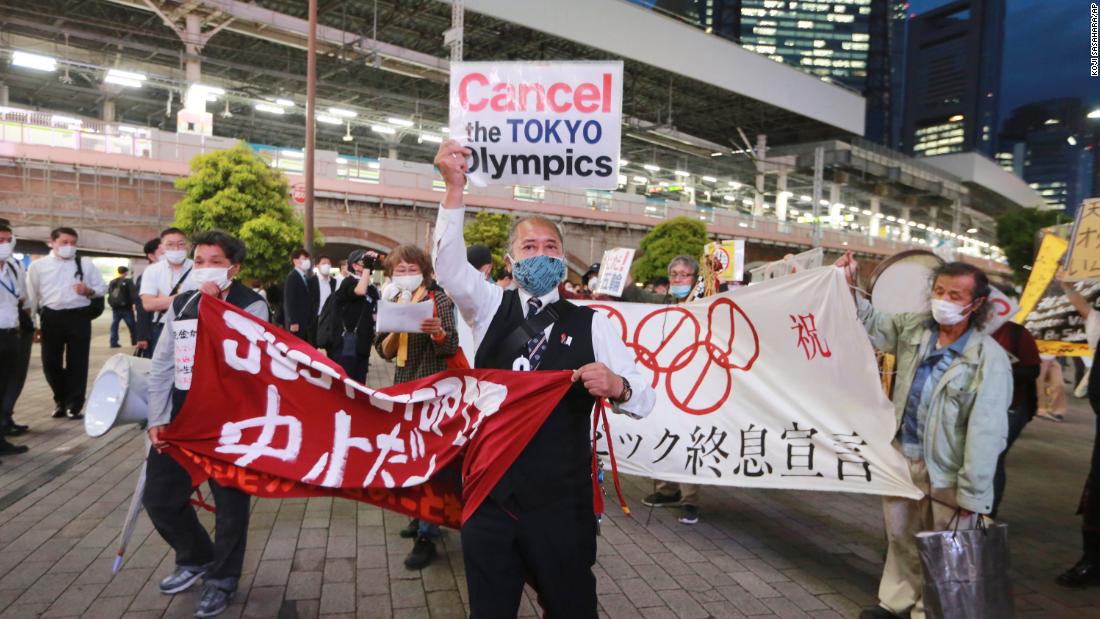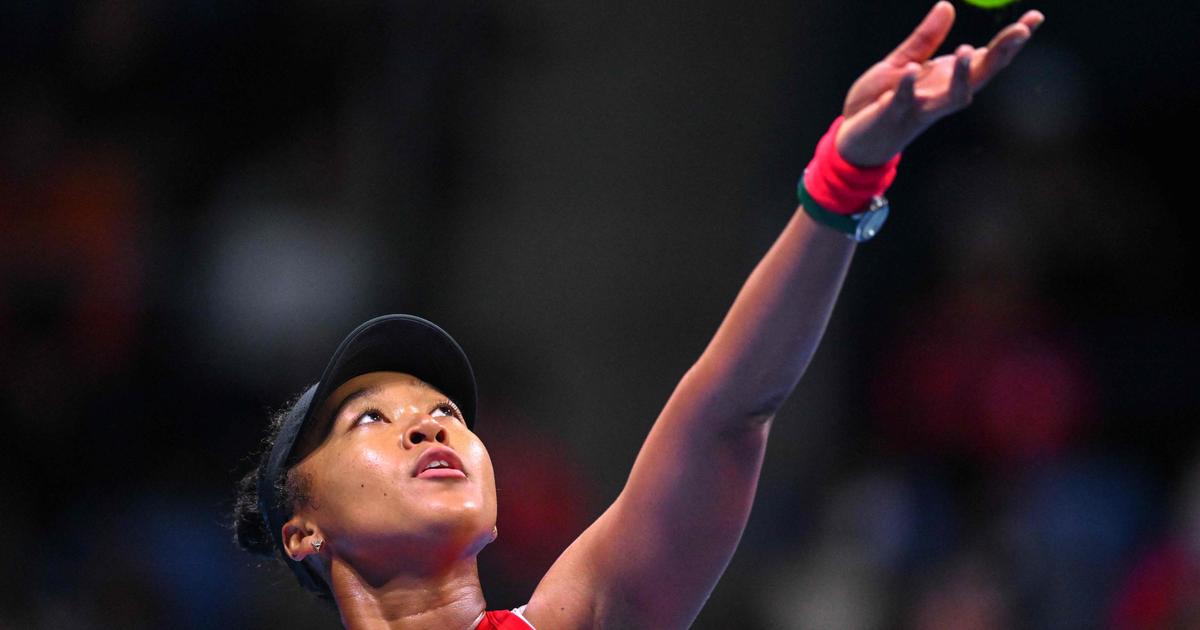Tokyo 2020 Olympics in focus 0:51
(CNN) -
With just over two months to go for the Tokyo Olympics, the possibility of a cancellation looms over the Games.
As Japan battles a fourth wave of COVID-19 infections and a state of emergency continues in Tokyo and other prefectures through the end of the month, there is mounting pressure from health experts, business leaders and the Japanese public to suspend the Olympics.
Last week, the Tokyo Medical Association, an organization of about 6,000 doctors in the city, wrote a letter calling for the cancellation, while a petition that garnered 350,000 signatures in nine days in support of the cancellation was presented to the organizers.
Also last week, the CEO of Japan's leading e-commerce company Rakuten said holding the Games amid the pandemic amounts to a "suicide mission," one of the biggest oppositions ever voiced by a business leader. .
However, the International Olympic Committee (IOC) has been adamant that the Olympic Games - already postponed a year due to the pandemic - may begin on July 23.
The organizers have published a manual, the final version of which is expected next month, outlining a series of countermeasures that they say will ensure that the Olympics run safely, even with the arrival of thousands of athletes from around the world.
advertising
This is Japan 100 days before the Olympics 1:50
With the Beijing Winter Olympics now less than a year away, officials have also said that the Summer Games will not be postponed again and that a cancellation would be the most likely option if it is deemed unsafe to hold them at the rescheduled start date. for July.
The Olympics will be held safely, according to Sebastian Coe
How would a cancellation occur?
In the host city contract outlining the legal agreement between the IOC and Tokyo to host the Games, the IOC has the right to terminate the contract on the grounds that 'the safety of the participants in the Games would be seriously threatened or compromised. danger for any reason. "
According to legal expert Jack Anderson, there is likely to be increasing pressure on organizers to force a cancellation, a "political decision," rather than a strictly legal one.
"It is the safety of those athletes, which is the main concern of the IOC, the safety of the Japanese public, the main concern of the Organizing Committee and the
Japanese political
establishment
, which is the key," Anderson, a law professor at CNN, told CNN Sport. Melbourne Law School in Australia.
And this is not a one-time, ordinary event.
It is obvious that it is a great multidisciplinary event in many different stages.
Anderson adds that a termination of the host city contract would put risks and losses largely on the Organizing Committee, which is mandated to purchase insurance for the Games.
"That way, it's simple," he says.
"But of course, in other ways it is not easy because it is not simply a contract between the International Olympic Committee and the host organization."
“We have sponsorship contracts, we have broadcasts, we have hotels, we have a rank - a network of responsibilities contract - that are in place here.
It is a huge contractual problem and would have huge insurance ramifications if it were not carried out.
According to a Reuters report from January, insurers face a loss of $ 2 to $ 3 billion if the Olympics are canceled, which is the largest claim ever in the global event cancellation market.
And for the organizers, the financial impact of canceling the Games, even with insurance payments, could be considerable given that about 75% of the IOC's total funding comes from broadcast rights.
"For the International Olympic Committee - although it is now a very wealthy organization - its wealth is based on its main asset, which is the venue for the Games," explains Anderson.
“Therefore, not having a Games, and the ripple effect it has for sponsorship, for broadcasting, would be enormous.
It would be difficult to measure that.
But I think you could comfortably say that insurance alone would not cover it in terms of reputation and financial damage.
What about athletes?
Arguably, it would be the athletes who lose the most in a canceled Olympics.
Speaking to CNN Sport last week, World Athletics President Seb Coe said that 70% of those who pursue Olympic participation will only get one chance to compete in what is likely to be the pinnacle of their sports careers.
Canceling the Games, Coe said, would be "writing off a generation of athletes who have spent more than half of their young lives in pursuit of this moment."
The other problem, when it comes to athletes, is that countries around the world are in different stages of pandemic recovery and have different access to covid-19 vaccines, although Coe said he believes that 'most of the world will be at the Games ».
Tokyo 2020 Olympics: Postponements, Concerned Sponsors, and Online Petition to Cancel
With public pressure to cancel the Olympics, Japanese Prime Minister Yoshihide Suga said last week that he "has never made [the] Olympics" a priority.
“My priority has been to protect the life and health of the Japanese population.
We must first prevent the spread of the virus, "he said.
The Olympics have been canceled three previous times: in 1916, 1940 and 1944, all due to world wars.
Olympic Tokyo 2020









